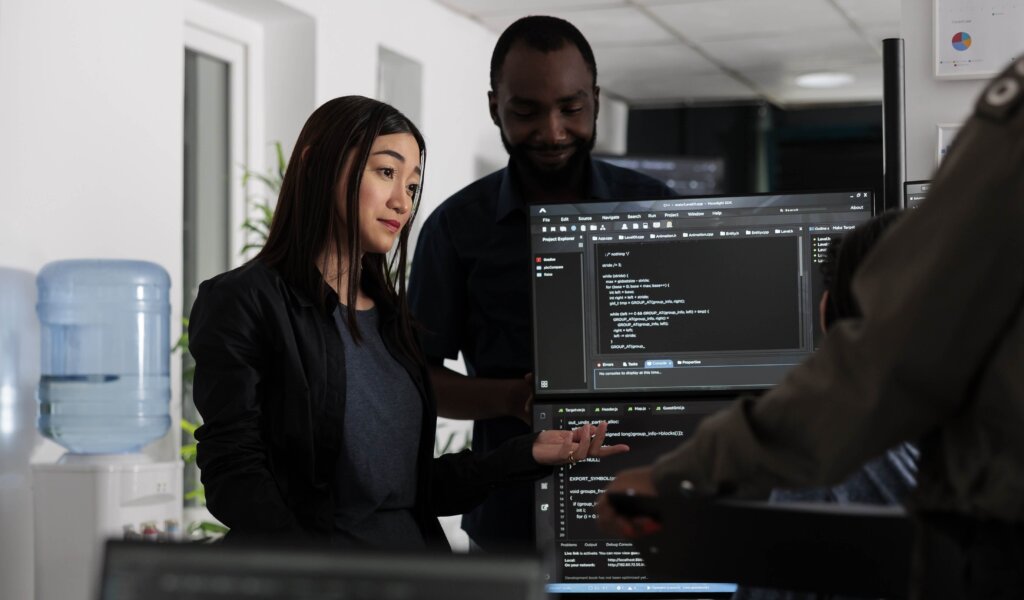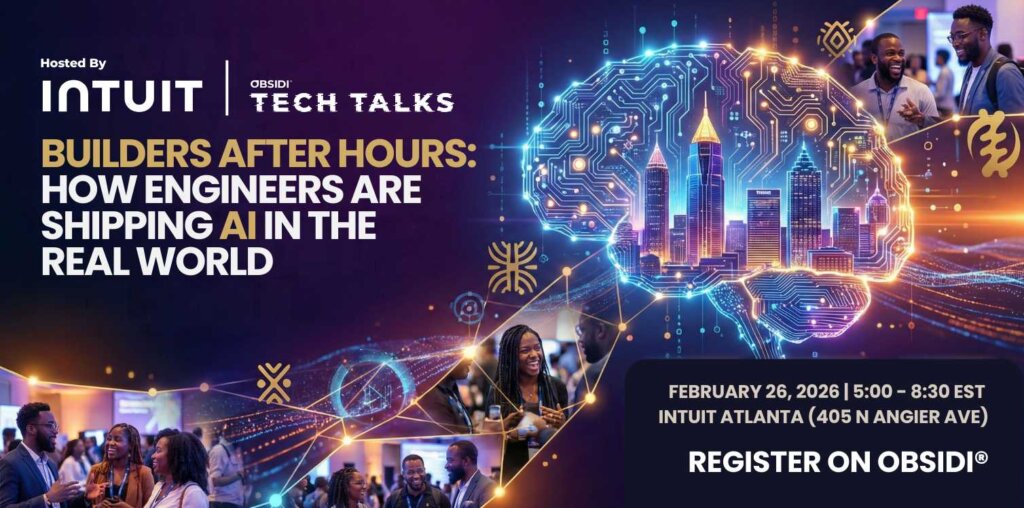You’re in a bit of a pickle. You’re looking to hire blockchain developers. However, you’re either a little fuzzy on blockchain protocols, or you have little to no knowledge of what being a blockchain developer actually entails.
Don’t worry. We’ll answer all the common blockchain FAQs and review everything you need to know to vet the candidates who apply, giving you access to top-talent programmers.
We’ll start with a brief overview of what a blockchain developer does, and then provide a list of things to look for (including red flags to avoid) to ensure you land a high-quality candidate with the skillset you need.
What is Blockchain?
Most people have heard of cryptocurrency; blockchain keeps crypto transactions decentralized and secure. Though not a programming language itself, blockchain relies on various programming languages to establish and maintain some of its components.
The most common programming languages used are
- Java
- JavaScript
- Python
- Kotlin
- Solidity
A blockchain developer works as part of a development team to create and maintain web applications. These are often referred to as decentralized applications (DApps) that are open source — meaning rather than existing on a single computer, they are shared as part of a peer-to-peer network.
Blockchain is defined as a distributed ledger technology (DLT) used to store and organize information.
Rather than compiling the information into tables with rows and columns, blockchain information/records are collected into digitally formatted clusters, or “blocks.” Each block has limited storage. Once it has reached its capacity, it’s closed. The closed blocks are then linked together through a process known as cryptography.
At its core, blockchain meets project requirements by solving problems and creating opportunities.
Due to the field’s “disruptive” pioneering nature, blockchain development services are currently sought after by several industries. You’ll see blockchain developers working in finance, healthcare, and supply chain management. Blockchain development use cases are even being explored for identity management and secure voting applications.
Blockchain often acts as an intermediary between entities, facilitating transactions without a central authority. It’s also used in app development.
What Are the Two Main Types of Blockchain Developers?

There are two types of blockchain developers.
The first is a core blockchain developer. They’re responsible for developing and maintaining the architecture of blockchain systems. In addition to overseeing the network, they design protocols and establish security patterns.
The second type is the blockchain software developer. Their assignment involves building applications into the existing blockchain platforms. They handle interface design — often using react.js, connected to the blockchain through libraries like web3.js — and development and maintenance, including front-end and back-end maintenance.
The Four Primary Versions of Blockchain
Because blockchain is used in many industries, it must abide by the rules and regulations set forth by each, such as people’s right to privacy in the healthcare industry and the need to ensure secure transactions to protect assets in the financial sector.
Here are the four main types of blockchain:
Public Blockchain
Public blockchains are decentralized and open to anyone who wishes to participate in the network. They are used for Bitcoin, Ethereum, other digital wallet applications, and cryptocurrencies like non-fungible tokens (NFTs).
The validity of each transaction is reached through a consensus algorithm known as proof-of-work or proof-of-stake. These consensus mechanisms help maintain network integrity.
Private Blockchain
As the name implies, a private blockchain is a closed network that is only available to select participants. Often, it’s controlled by an entity or organization that manages sensitive information. Therefore, it’s integral to operations that the data remain secure internally.
Private blockchain is used in the healthcare and financial sectors. It’s an excellent means of streamlining information while keeping it secure.
Smaller networks are advantageous because they process transactions faster (sometimes in real-time) and can be tailored to meet specific objectives.
Consortium Blockchain
This type of blockchain is created and shared by pre-selected industries that form the network together. Access is only granted to members of the consortium.
It is often used in scenarios where multiple organizations need to work together securely, yet keep the work transparent to those within the network. This type of blockchain is ideal for supply chain management operations and financial institutions.
Hybrid Blockchain
A hybrid blockchain network is partially public and partially private, allowing organizations to selectively share information.
Hybrid blockchain is often used to manage regulatory compliance and bridge the gap between publicly available data and confidential data.
The system is adaptable, and the network can be built to comply with the industry’s stipulations.
Blockchain Developers at Work
Collaboration with other departments is a big part of the job.
Blockchain developers typically work alongside:
- Other developers
- Designers
- Product managers
- Software engineers
- Security experts
- Legal teams
- Stakeholders
They help create and streamline data structures by collaborating with the rest of the company ecosystem to develop a system that caters to current business needs.
Keep in mind that if your projects go beyond blockchain, you may also need to hire a machine learning developer to build AI-driven solutions.
Crafting the Blockchain Developer Job Posting
As you begin to create the job description, you must consult with the project management team, web developers, and whoever else will manage and collaborate with the blockchain developer you’re hoping to hire.
You want to ensure the job post reaches the best blockchain developers who have the required developer skills, coupled with the soft skills necessary to succeed.
Before posting the job description, have it reviewed for accuracy.
Ensure that all the requirements related to the job description are listed. You’ll want to include things like:
- Expertise with specific platforms like Ethereum (Solidity), Solana, etc.
- Code optimization skills
- Cryptography fundamentals
- Distributed systems knowledge
- Smart contract development experience
- Security best practices (familiarity with Rust)
- Previous project deployments
When it’s time to share the job, post it where the qualified candidates are.
If it’s not already part of your regular hiring practice, try to branch out beyond typical places like LinkedIn.
Platforms like Obsidi® are excellent resources. Businesses that partner with us gain access to our engaged network of almost 100,000 diverse tech professionals — most of whom are at the mid-level stages of their careers and have varying years of experience in the field.
Your job posting will be seen by our audience. You also get engagement opportunities by hosting Tech Talks, which are great ways to capture our audience’s interest and delve deeper into various tech-related topics.
Preparing for the Interview

Chances are you already have a fairly well-established hiring process and onboarding practice.
If you don’t already have a pre-interview test, it’s worth adding. It doesn’t have to be extensive; you want to ensure the candidates you interview have a firm grasp on the fundamentals of blockchain development.
You can find screening tests through sites like Vervoe or TestGorilla, to name a few.
Create a list of candidates you’re interested in interviewing. Before scheduling their interview, request that each submit a blockchain-based portfolio that they believe encapsulates their work.
Use that, plus their resume and test score, to help determine who you’d like to interview.
The Interview Process
The interview may still feel daunting since the depth of your knowledge in this sphere is limited. Here are some workarounds and solutions to help ensure you are still able to land a blockchain expert:
Be Prepared
Create a list of pre-determined questions that cover:
- System design
- Blockchain database experience
- Knowledge of Application Programming Interface (API)
- Questions that address prior experience in the field
- Experience with hyperledger fabric or other framework
- Security-related questions
- Discussion of blockchain architecture
- Understanding of gas costs
- Collaboration experience
- Hard skills required
- Soft skills required
Record the Interview
Ask if you can record the interview. This way, the candidate’s answers can be reviewed for accuracy and help ascertain if they know what they’re talking about.
Have the Candidate Take a Test
Each candidate should be given a more in-depth coding test after the interview.
For example, you can have them complete a whiteboard assessment, walking through a problem in front of the interview panel while explaining each step of the process. (You would likely need to have a blockchain expert present.) They can also take a test onsite or be given a take-home test to be submitted by a specified time.
Again, there are plenty of sites that cater to specific tech-related tests. Whichever you choose, make sure it delves into the nitty-gritty details of the skillset you’re seeking.
Candidate Red Flags
Finally, it’s worth keeping an eye out for red flags. Here are a few you should be aware of:
No Blockchain Work Examples
If you’re unable to verify any previous blockchain projects or blockchain work, this is a problem. It’s important that they provide examples of work they’ve done in the past.
Unfamiliar With the Concept of Gas Costs
Sometimes called “gas fees” or “transaction fees,” these are the costs users pay to have their transactions processed and validated.
The more complex a transaction or the faster it is processed, the higher the gas costs.
Each blockchain has its own fees and procedure used to determine gas costs.
Ethereum uses their own Ether cryptocurrency to define their gas price, and the gas limit increases with more complex transactions. An example of the formula Ethereum uses is: Total Fee = Gas Limit * (Base Fee + Priority Fee).
Gas costs are important because they prevent network spamming.
If the candidate has a limited understanding of gas fees, it’s worth exploring further to ensure they understand the scope of blockchain developer work.
They Don’t Understand Crypto
Regardless of what you’re hiring a blockchain developer for, it’s crucial they understand cryptocurrency because digital currency is the primary blockchain development and technology application.
It defines the underlying structure and as such, developers need to firmly grasp the concept.
They’re Unfamiliar With Mainnet Deployment History
Mainnet Deployment History is the chronological record of how each element is deployed in the blockchain network. This traces the history from development to production, detailing each upgrade or modification.
Blockchain developers must understand the concept and why it’s important — it aids in transparency and verification.
Insufficient Documentation
If a candidate has little to no documentation demonstrating their skills, this could potentially be a red flag. Pay particular attention to their answers during the interview and their test scores.
They Fail Their Test
Failing their test is a big red flag. Save for a few extenuating circumstances, this should lead to automatic disqualification.
Conclusion
Everyone – from startups to businesses hoping to scale — needs a qualified blockchain developer on their team. If you’re in business today, chances are landing a full-time blockchain expert will help your company reach those lofty goals.
Head to the best place for diverse tech talent.







